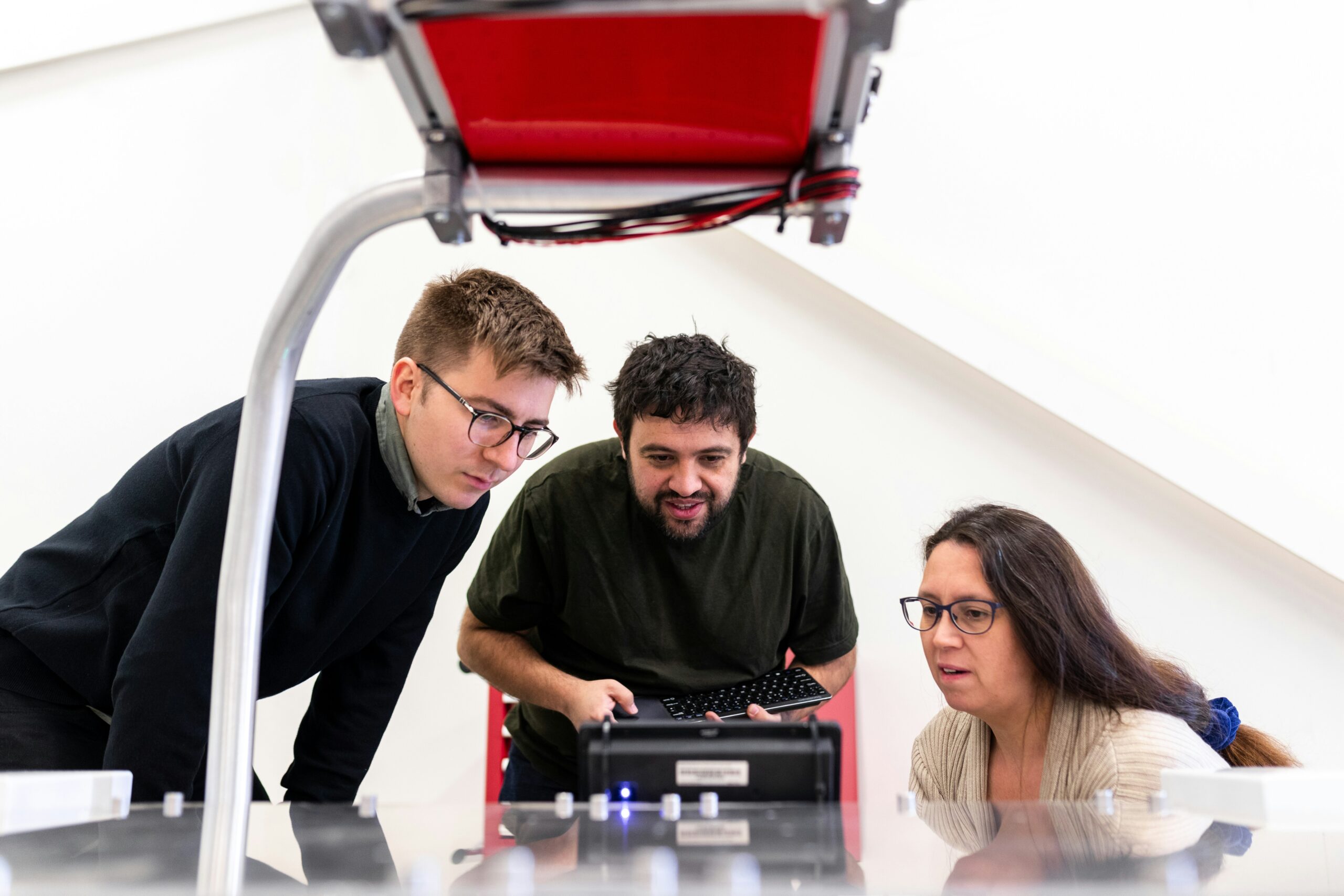In the fast-changing world of technology, new innovations constantly reshape industries and how people interact. As we look forward to 2024, several cutting-edge technologies are poised to make a big impact. Let’s explore the top five trends: blockchain, quantum computing, augmented reality (AR), artificial intelligence (AI), and sustainable tech innovations. These advancements are set to revolutionize various sectors in the coming years.
1. Blockchain: Revolutionizing Trust and Transactions
Blockchain technology, initially popularized by cryptocurrencies like Bitcoin, has transcended its origins to revolutionize various industries beyond finance. At its core, blockchain is a decentralized ledger that enables secure, transparent, and immutable record-keeping. The distributed nature of blockchain ensures that data cannot be altered retroactively, fostering trust among participants without the need for intermediaries.
In 2024, blockchain’s applications are expanding rapidly:
- Supply Chain Management: Blockchain enhances transparency and traceability across supply chains, from raw material sourcing to product delivery. This ensures authenticity and ethical sourcing, critical for industries like agriculture, luxury goods, and pharmaceuticals.
- Digital Identity Verification: Traditional identity verification methods are prone to fraud and data breaches. Blockchain offers a decentralized solution where individuals control their digital identities securely. This has implications for banking, healthcare, and government services.
- Smart Contracts: These self-executing contracts automatically facilitate, verify, or enforce the negotiation or performance of a contract, without the need for intermediaries. This innovation is revolutionizing sectors such as real estate, insurance, and legal agreements.
- Environmental Impact: Blockchain technology is increasingly used to track carbon emissions, promote sustainable practices, and verify the authenticity of green energy certificates. This application supports global efforts to combat climate change and achieve environmental sustainability.
Blockchain technology has the potential to profoundly change how industries operate by making processes more efficient, secure, and transparent. This transformative impact is driving its adoption across various sectors worldwide.
2. Quantum Computing: Unlocking Unprecedented Computational Power
Quantum computing represents a paradigm shift in computational capability, leveraging principles of quantum mechanics to process information in ways that classical computers cannot. While still in its early stages of development, quantum computers hold immense potential to solve complex problems exponentially faster than their classical counterparts.
In 2024, quantum computing advancements are expected to impact:
- Cryptographic Security: Quantum computing threatens current cryptographic methods by exponentially speeding up prime factorization and breaking encryption algorithms. Researchers are developing quantum-resistant cryptographic protocols to safeguard sensitive data.
- Drug Discovery and Material Science: Quantum simulations enable researchers to model molecular interactions with unprecedented accuracy. This capability accelerates drug discovery processes, facilitates material design, and optimizes chemical reactions.
- Optimization and Machine Learning: Quantum algorithms promise to revolutionize optimization problems, enhancing logistics, financial modeling, and machine learning tasks. Applications include portfolio optimization, route planning, and neural network training.
- Global Collaboration: Achieving practical quantum supremacy requires collaboration between governments, academia, and private sectors worldwide. Major tech companies and research institutions are investing heavily in quantum hardware and software development.
While challenges such as maintaining qubit stability and scalability remain, quantum computing heralds a new era of computational capability with profound implications for science, industry, and society.
3. Augmented Reality (AR): Bridging Virtual and Physical Worlds
Augmented Reality integrates digital information seamlessly into the user’s real-world environment, enhancing perception, interaction, and user experience. Unlike virtual reality, which immerses users in entirely virtual environments, AR overlays digital content onto the physical world, offering practical applications across various sectors.
In 2024, AR technologies are poised to transform industries:
- Retail and E-commerce: AR enhances customer engagement with virtual try-on experiences for clothing, cosmetics, and furniture. It enables interactive product demonstrations and personalized shopping recommendations, driving online and in-store sales.
- Education and Training: AR applications revolutionize learning experiences with interactive textbooks, virtual simulations, and immersive historical reconstructions. It improves knowledge retention, skills development, and remote collaboration.
- Healthcare and Telemedicine: AR aids medical professionals in surgical planning, patient education, and remote consultations. Surgeons benefit from AR-assisted procedures, improving precision and patient outcomes.
- Entertainment and Gaming: AR games and entertainment applications continue to innovate, integrating social media platforms and location-based experiences. This engagement fosters community interaction and user-generated content.
Advancements in AR hardware, including AR glasses and wearable devices, enhance accessibility and usability, making augmented reality an integral part of daily life.
4. Artificial Intelligence (AI) Advancements: From Narrow to General Intelligence
Artificial Intelligence continues to evolve rapidly, transforming industries by enabling machines to simulate human intelligence and perform cognitive tasks. In 2024, AI innovations are advancing towards achieving general intelligence:
- Natural Language Processing (NLP): AI-powered language models like GPT-4 are revolutionizing human-computer interactions, enabling accurate language translation, sentiment analysis, and content generation. NLP applications enhance customer service, content moderation, and personalized recommendations.
- Autonomous Vehicles: AI algorithms enable self-driving cars to navigate complex environments, predict human behavior, and enhance road safety. Autonomous vehicles promise to revolutionize transportation, logistics, and urban mobility.
- Predictive Analytics and Decision Support: AI-driven predictive models analyze big data to forecast trends, optimize business strategies, and mitigate risks. Industries benefit from data-driven insights, driving operational efficiency and informed decision-making.
- Ethical Considerations: As AI adoption accelerates, ethical concerns regarding bias, privacy, and algorithmic transparency are gaining prominence. Regulatory frameworks and ethical guidelines are essential to ensure responsible AI deployment and mitigate unintended consequences.
The quest for achieving general AI, capable of performing diverse intellectual tasks, underscores ongoing research and development efforts, shaping the future of AI technologies and their societal impact.
5. Sustainable Tech Innovations: Balancing Growth with Environmental Responsibility
Amid growing environmental challenges, technology plays a pivotal role in promoting sustainable practices and mitigating climate change impacts. In 2024, sustainable tech innovations prioritize environmental responsibility across sectors:
- Renewable Energy Solutions: Advances in solar, wind, and hydrogen technologies drive the transition towards clean energy sources. Smart grid technologies optimize energy distribution and storage, enhancing grid reliability and resilience.
- Circular Economy Initiatives: Tech-driven initiatives promote resource efficiency, waste reduction, and closed-loop systems. Circular economy principles encourage product longevity, reuse, and recycling, minimizing environmental footprint.
- Smart Cities and Urban Sustainability: IoT-enabled sensors and AI algorithms optimize resource management, traffic flow, and infrastructure resilience in smart cities. Sustainable urban planning integrates green spaces, renewable energy systems, and eco-friendly transportation solutions.
- Corporate Sustainability Strategies: Companies embrace sustainability as a core business strategy, adopting eco-friendly practices in product design, manufacturing processes, and supply chain management. Consumer demand for ethically sourced products drives market trends towards sustainability.
The convergence of technology and sustainability fosters innovation, economic growth, and environmental stewardship, paving the way for a more resilient and equitable future.
Conclusion
These five emerging tech trends demonstrate how innovation is reshaping industries and tackling global challenges. From blockchain improving trust in transactions to quantum computing offering unprecedented computational power, augmented reality blending virtual and real worlds, AI progressing towards broader intelligence, and sustainable tech innovations promoting environmental responsibility, these trends are leading the charge in technological advancement.
Stay informed and engaged as we navigate these evolving trends, seizing opportunities to drive positive change and build a sustainable future for generations to come. Embrace the future with optimism and readiness to adapt to the exciting advancements ahead in technology.


